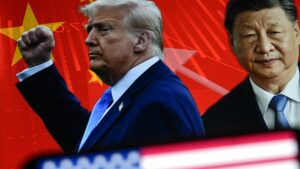The Massachusetts Attorney General and the Commonwealth’s Gaming Commissioners have responded to Robinhood’s claims regarding its offering of sports-related event contracts.
About a month ago, Robinhood Derivatives, LLC filed an action for declaratory and injunctive relief against the Massachusetts Attorney General and the Commonwealth’s Gaming Commissioners (collectively, the “Commonwealth”) after the Commonwealth sued KalshiEX, LLC (“Kalshi”) in Massachusetts state court for violating state sports wagering law.
The case against Kalshi has now been removed to this Court, and is subject to a pending motion to remand.
On October 9, 2025, the defendants in this lawsuit filed a motion to dismiss.
The defendants explain that Robinhood’s suit, and its corresponding preliminary injunction motion, are purportedly brought to forestall future state enforcement. In Robinhood’s pleadings, the basis of the alleged “credible threat” of enforcement is identified as the Commonwealth’s separate lawsuit against Kalshi, a prediction market that Robinhood allows its users to access on its digital platform.
The defendants argue that there is no actual case or controversy between Robinhood and the Commonwealth that is properly before the Court. Robinhood’s complaint arises exclusively from the Kalshi offerings it makes available on its platform. In Robinhood’s own telling, “while Robinhood customers are placing orders for event contract trades in their Robinhood accounts, the trades themselves are taking place on Kalshi’s CFTC-designated exchange.”
The defendants say that Robinhood’s lawsuit seeks to end-run the Commonwealth’s preexisting enforcement action against Kalshi, which (unlike this action) includes the requisite parties to decide the legality and classification of Kalshi’s contracts under Massachusetts law.
According to the defendants, Robinhood’s action is improper for several reasons:
First, Robinhood lacks standing.
Second, the case is unripe.
Third, Robinhood has no private right of action to enforce the Supremacy Clause; instead it seeks a declaratory action over which this Court should not assert jurisdiction.
Fourth, even if Robinhood’s claim for injunctive relief were proper, which it is not, according to the defendants, other abstention doctrines provide that this action should be dismissed or stayed.
Fifth, irrespective of any of the foregoing, the Court has the inherent authority to stay this action pending the resolution of the Kalshi matter, which it should exercise.
The defendants insist that Robinhood’s preliminary injunction is not warranted. Robinhood faces no harm, let alone the imminent and irreparable harm required for preliminary relief.
The defendants note that Federal courts have long recognized the fundamental state police power to govern casino and sports gambling.
According to the defendants:
“Robinhood’s argument that the Commodity Exchange Act (“CEA”), as amended in 2010, silently displaced that authority by requiring that all sports wagering operations fall only under the CFTC’s purview—unbeknownst to the Supreme Court, state gambling regulators, and the dozens of state legislatures that have since enacted detailed state regulatory regimes—fails. The claim is refuted by fundamental rules of statutory interpretation and legislative history; it simply defies common sense”.









